Is Eric Adams’s Luck About to Run Out?
Losing one police commissioner might be merely careless. But losing two—with a number of federal investigations targeting the mayor’s inner circle—has encouraged challengers.
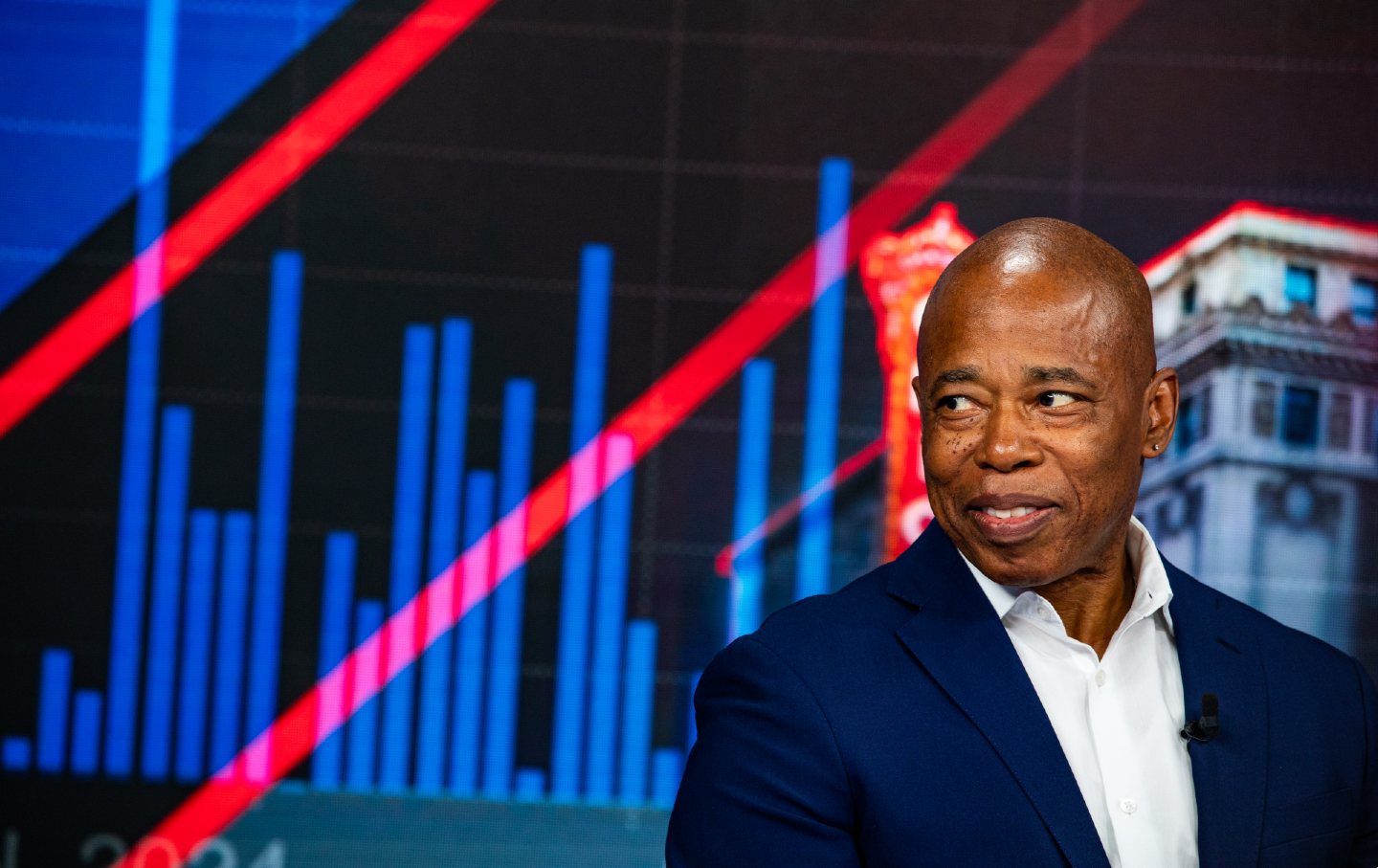
There has never been a mayor like Eric Adams in the modern history of New York City—that much, deep into his first and perhaps only term, is clear enough.
During his three years in office, Adams has appointed three different police commissioners. His first Department of Buildings commissioner was indicted on corruption charges. Federal prosecutors are currently investigating whether Adams and his campaign conspired with the Turkish government to collect illegal foreign donations, and whether his second police commissioner, Edward Caban, was tied to a possible extortion ring run by Caban’s twin brother. Caban was forced to resign once FBI agents seized his mobile phone. Two other powerful deputy mayors, Philip Banks and Sheena Wright, also had their phones seized.
On Saturday, Adams was dealt another stunning blow when his chief counsel, Lisa Zornberg, abruptly stepped down. Zornberg’s resignation came only two days after Caban’s. Unlike the police commissioner, Zornberg chose to leave. A person close to her told The New York Times the mayor was not taking her advice on “certain personnel matters.”
Adams himself has not been charged with any wrongdoing—and it’s still unclear if the federal probes are targeting him directly. No sitting mayor of New York has ever been indicted.
It would be too soon to declare Adams’s political career over. Perversely, the Democrat can look to another flamboyant and incendiary New Yorker, Donald Trump, as proof that legal entanglements and even indictments do not always slow political momentum. But Adams, for now, is in a far more vulnerable position, deeply unpopular with many voters across the city and threatened with a primary next year. Trump can always fall back on his cultic fan base; Adams does not have such a fervent following, and a growing number of New Yorkers are wearying of his act. He has already posted the lowest approval rating of any New York mayor in Quinnipiac University’s polling history.
The trouble for Adams started well before the latest explosion of corruption headlines. From the time he took office in 2022, he teetered from one scandal to another, and failed to take governing seriously. He stuffed the municipal government with patronage hires and turned over pivotal agencies, like the Department of Transportation, to dubious allies with limited qualifications. Talented bureaucrats fled, and Adams effectively hollowed out the governing machinery of the city. Bill de Blasio and Michael Bloomberg, the two other mayors to lead New York in the 21st century, were flawed men, but each offered a governing vision for the five boroughs and left behind tangible policy accomplishments. Bloomberg banned indoor smoking, pedestrianized Times Square, and presided over the construction of world-class parkland. De Blasio quickly established a universal pre-kindergarten program that became a national model, and aided working-class tenants with rent freezes and city-funded attorneys for housing court cases.
Adams never focused on policy or planning long enough to leave behind a legacy like that. He preferred ribbon-cuttings, flag-raisings, and carousing late at night, treating the mayoralty like the ceremonial post he used to hold, Brooklyn borough president. Petty corruption and favor-trading—at least the appearance of it—was a regular feature of the new administration. Adams’s first chief of staff, Frank Carone, abruptly left the government after a year to establish a new consulting firm with well-heeled clients who have business before the city. It was all very brazen, and also quite predictable.
Shortly after his narrow primary victory in the summer of 2021, Adams declared himself the “Biden of Brooklyn” and national pundits speculated that the mayor-in-waiting could be the fresh leader the Democratic Party sorely craved. Adams, a former police captain, is a product of the Black working class of the city, and he seemed to offer a path forward for a party too dependent on the college-educated to win elections. For moderates and corporatists hoping for a strong check on the progressive left, Adams was also attractive; he was unabashedly pro–Wall Street, pro-landlord, and pro-police.
But now that he finds himself in the crosshairs of the US Attorney for the Southern District, Adams has vanishingly few allies. Unlike de Blasio, he was not invited to address the Democratic National Convention. The Biden White House wants nothing to do with him after he repeatedly assailed the president for failing to curtail the migrant influx into New York City. Kamala Harris does not want to campaign with him. Few local politicians support him. Once Caban’s phone was seized, a prominent liberal city councilman, Lincoln Restler, immediately called for the police commissioner to resign. One of the most conservative city council members, Bob Holden, joined Restler in issuing the same call.
The final question is whether Adams will have a second term. Incumbent mayors almost always win reelection, but Adams is much more damaged than any of his recent predecessors. Of late, he has tried to tamp down his challengers by invoking David Dinkins, the city’s first Black mayor. Dinkins lost his reelection bid to Republican Rudy Giuliani in the early 1990s, and a handful of Black political leaders, including the Rev. Al Sharpton, have rallied to Adams’s defense. But this rhetorical maneuver is shallow and disingenuous. Beyond skin color, Dinkins and Adams had little in common. Though a product of the Harlem machine, Dinkins himself was a soft-spoken, courtly, and scrupulously honest operator who was never personally touched by corruption investigations. He lost because he governed during a far more fraught era of the city’s history—crime was high, the crack epidemic hadn’t yet petered out, and racial tensions were destabilizing outer-borough neighborhoods. And even then, Dinkins was not threatened in a primary.
Adams can take some solace in the weaknesses of his current challengers. Two progressive state senators, Jessica Ramos and Zellnor Myrie, aren’t well-known citywide. Scott Stringer, the former city comptroller, must prove he can run competitively citywide after his last mayoral campaign imploded following allegations of sexual harassment. (Stringer denied the allegations.) Brad Lander, the current city comptroller, needs to find a way to appeal to working-class voters beyond the affluent brownstone belt of Brooklyn and the tony precincts of Manhattan. Andrew Cuomo, the disgraced former governor, has also been eying a comeback—and might jump into the race if Adams is indicted. While Cuomo’s own long history of scandal could hold him back, he would be formidable in a primary.
Ranked-choice voting makes it possible for all of these Democrats to run and collectively deny Adams the nomination. Some might form anti-Adams coalitions. And even if the federal investigations fizzle, they won’t be deterred. Blood is already in the water.
Support independent journalism that exposes oligarchs and profiteers
Donald Trump’s cruel and chaotic second term is just getting started. In his first month back in office, Trump and his lackey Elon Musk (or is it the other way around?) have proven that nothing is safe from sacrifice at the altar of unchecked power and riches.
Only robust independent journalism can cut through the noise and offer clear-eyed reporting and analysis based on principle and conscience. That’s what The Nation has done for 160 years and that’s what we’re doing now.
Our independent journalism doesn’t allow injustice to go unnoticed or unchallenged—nor will we abandon hope for a better world. Our writers, editors, and fact-checkers are working relentlessly to keep you informed and empowered when so much of the media fails to do so out of credulity, fear, or fealty.
The Nation has seen unprecedented times before. We draw strength and guidance from our history of principled progressive journalism in times of crisis, and we are committed to continuing this legacy today.
We’re aiming to raise $25,000 during our Spring Fundraising Campaign to ensure that we have the resources to expose the oligarchs and profiteers attempting to loot our republic. Stand for bold independent journalism and donate to support The Nation today.
Onward,
Katrina vanden Heuvel
Editorial Director and Publisher, The Nation
More from Ross Barkan
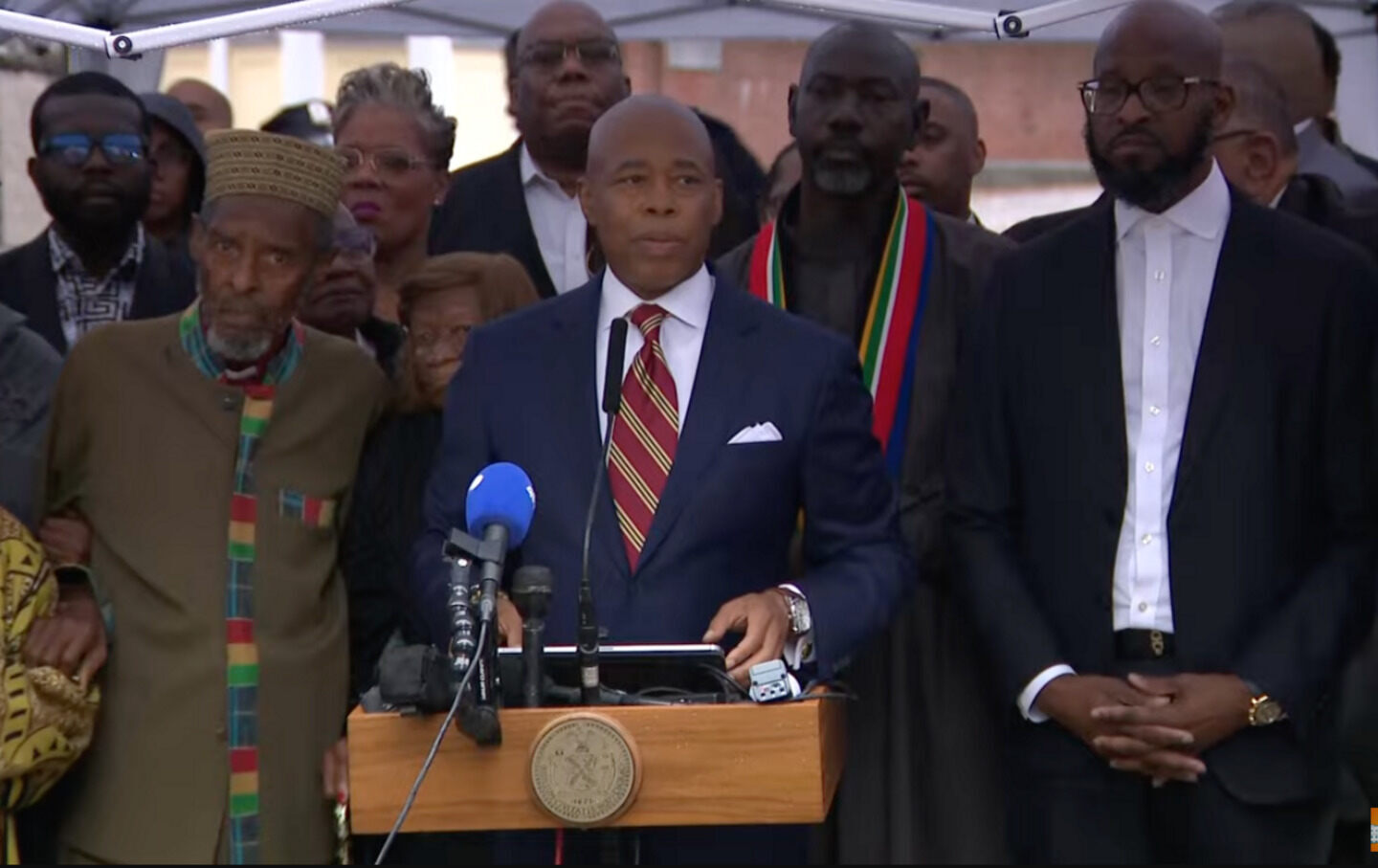
Eric Adams Has Been Indicted. What Now? Eric Adams Has Been Indicted. What Now?
The Southern District has indicted New York City’s mayor. But anyone who claims to be certain of the trajectory of the next six months is lying to you.

A Close-Up View of the UK Election Gave Rise to an Unfamiliar Emotion: Envy A Close-Up View of the UK Election Gave Rise to an Unfamiliar Emotion: Envy
The US left can only dream of Democrats’ having five years ahead of interrupted power—and control of Congress—with the GOP, like the Tories, driven far to the margins for a d...

Has NY Governor Kathy Hochul Killed Congestion Pricing For Good? Has NY Governor Kathy Hochul Killed Congestion Pricing For Good?
Or just until after the election? Either way, she’s blown a $15 billion hole in the MTA budget, leaving New Yorkers with overcrowded streets, filthy air, and an underfunded subwa...
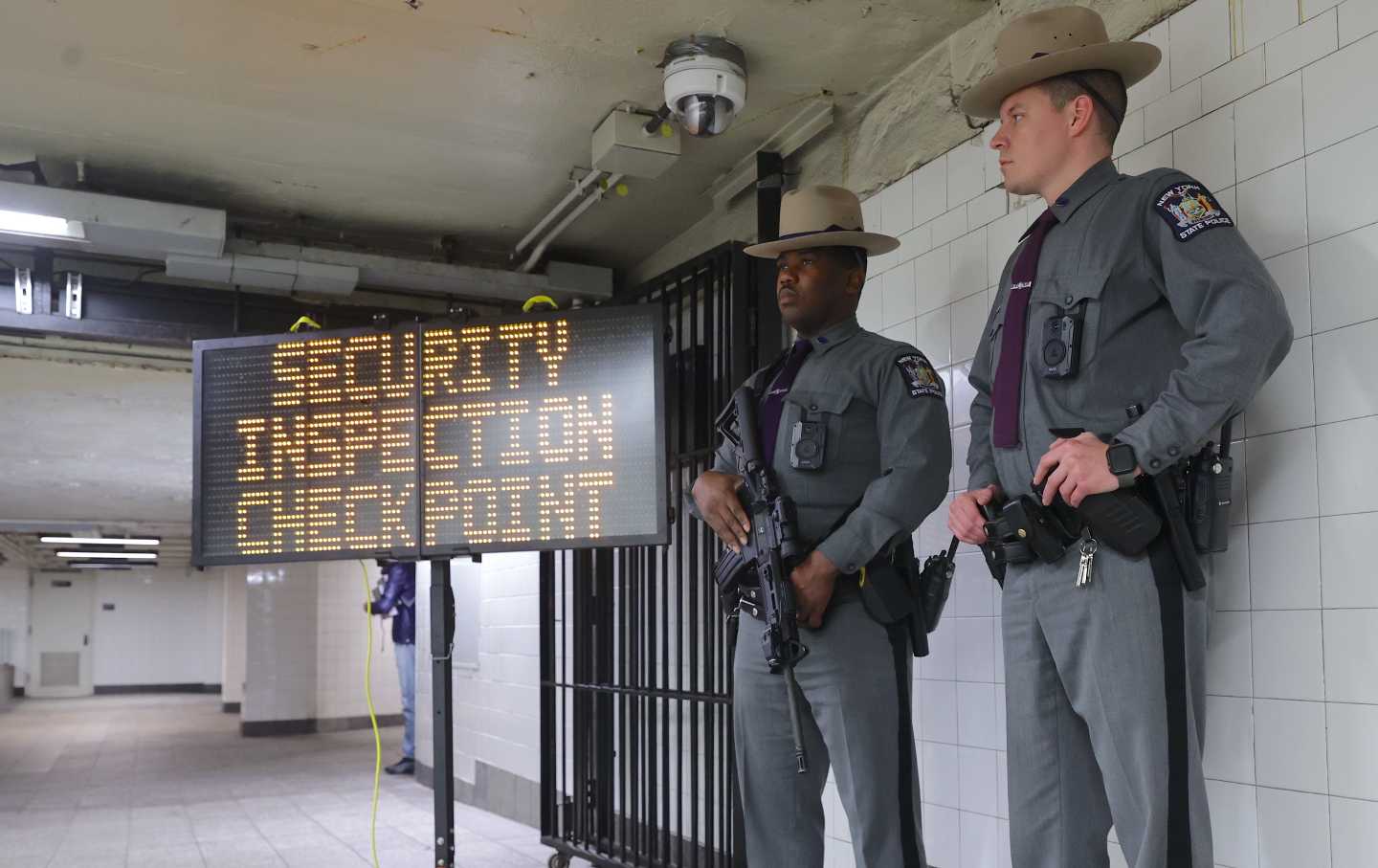
Why Are Armed Troops in NYC Subways? Why Are Armed Troops in NYC Subways?
Kathy Hochul made a grave miscalculation by further militarizing a city she doesn’t live in or understand.
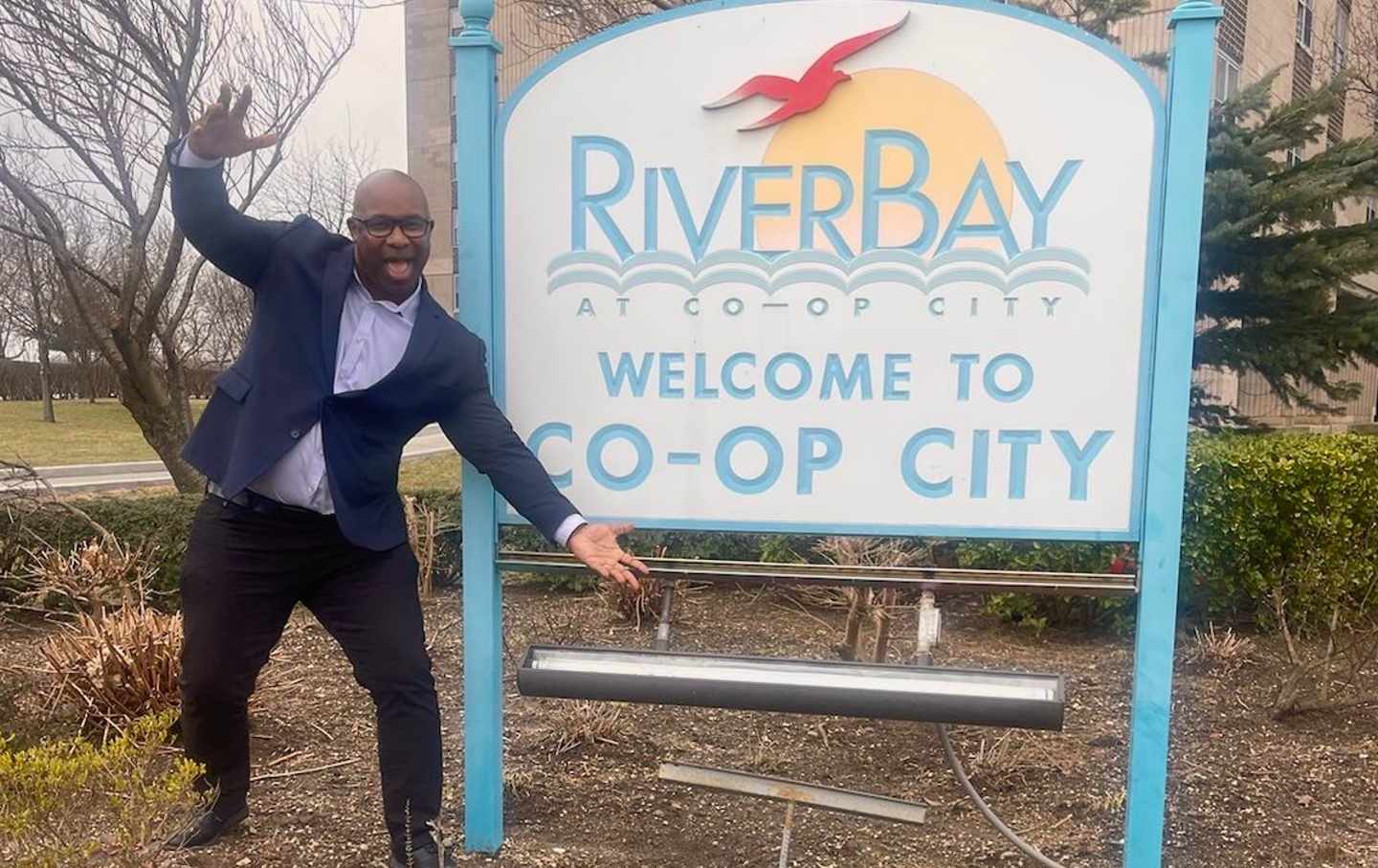
New York's Long Congressional Redistricting Nightmare Finally Comes to an End New York's Long Congressional Redistricting Nightmare Finally Comes to an End
Liberals and leftists hoping for a sure path to retaking the House may be disappointed, but Democrats should still do well. And voters and incumbents each gain valuable clarity.
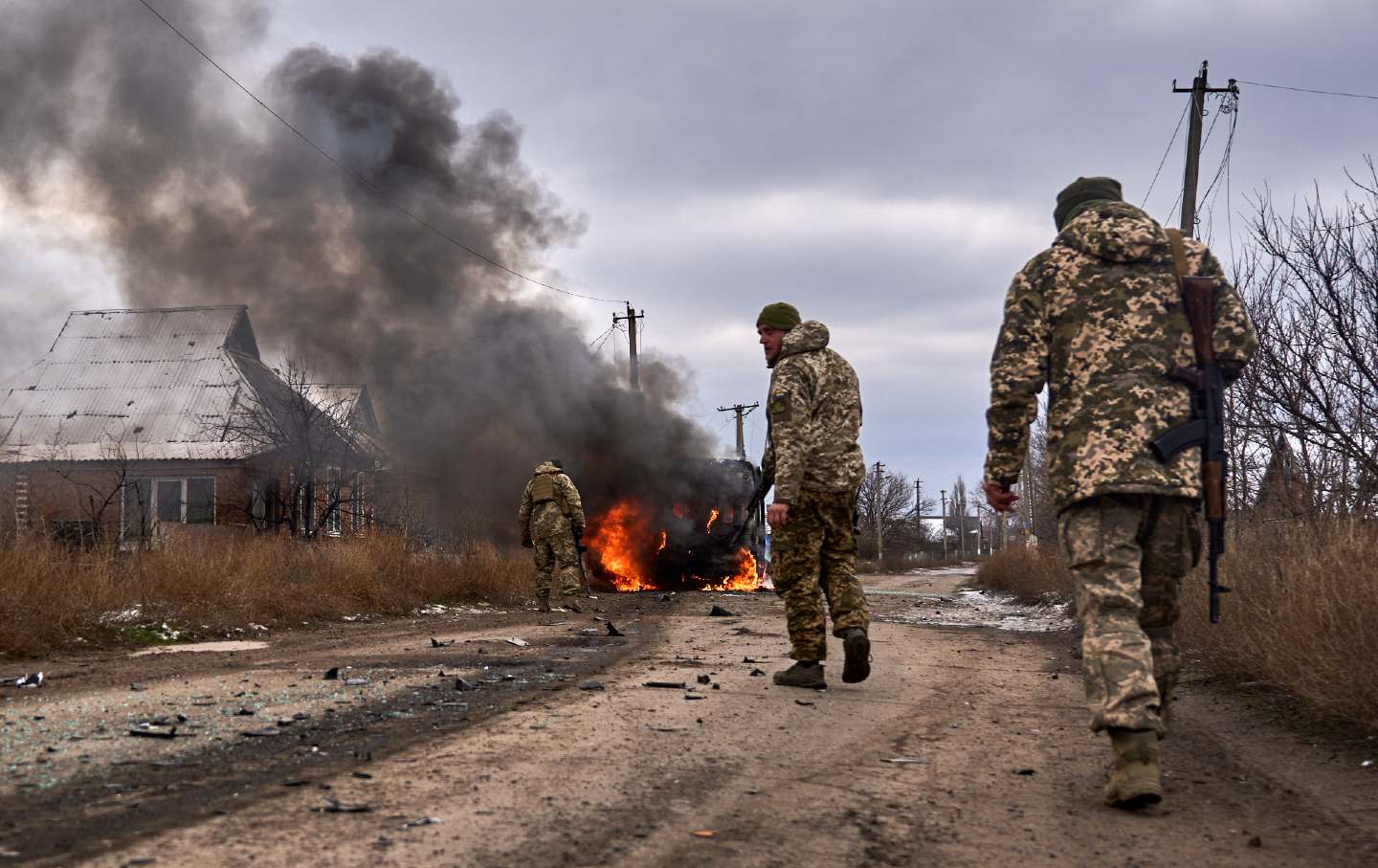
It’s Time to Negotiate With Russia It’s Time to Negotiate With Russia
Diplomacy will be ugly, but peace must be the ultimate goal.


